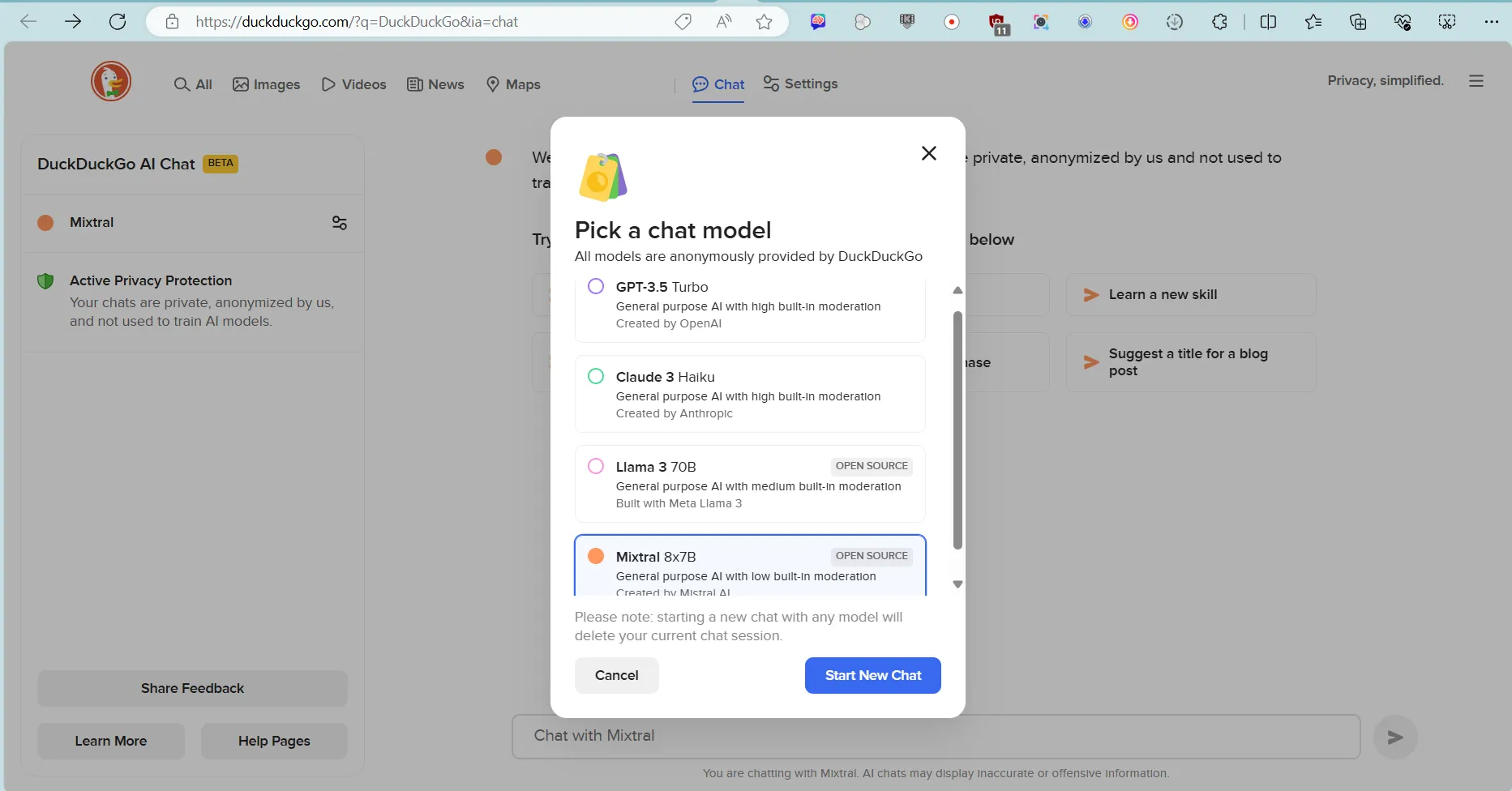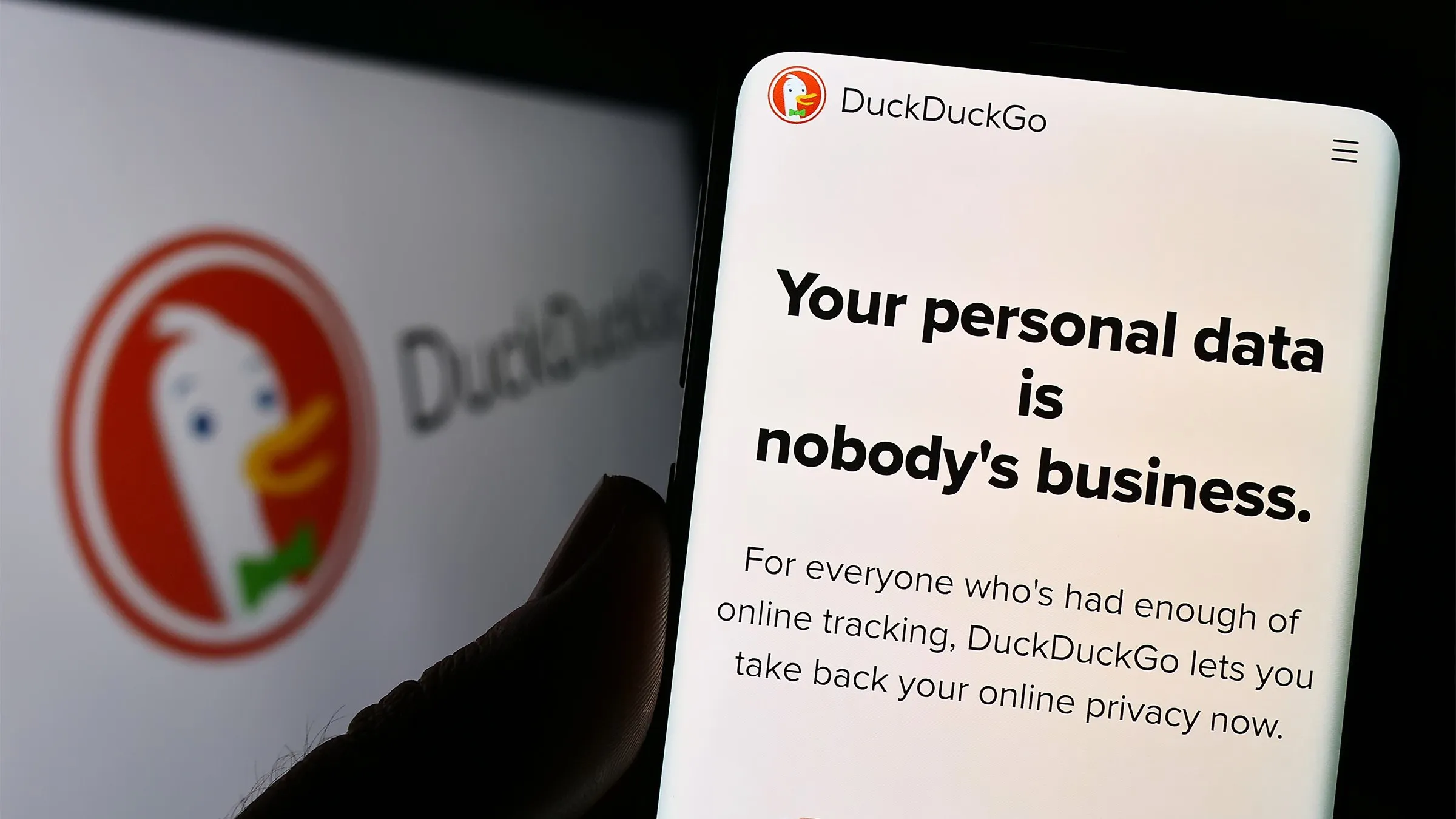DuckDuckGo, renowned for its privacy-focused search engine and web browser, has announced a new service that allows users to interact with popular AI chatbots privately and anonymously. The service, called DuckDuckGo AI Chat and accessible at Duck.ai, is globally available now.
The interactions on Duck.ai are private because "neither DuckDuckGo nor the chatbot providers can use the users’ data to train their models," the company explains. They are also anonymous, as DuckDuckGo doesn’t require users to set up accounts, or provide personal information before start interacting with it.
DuckDuckGo even strips away metadata, such as server or IP addresses, so that queries appear to originate from the company itself rather than individual users.
Although the supported commercial AI chatbot providers—OpenAI and Anthropic—do keep access logs, DuckDuckGo says it has “agreements in place with all model providers to ensure that any saved chats are completely deleted by the providers within 30 days, and that none of the chats made on our platform can be used to train or improve the models.”
That makes preserving privacy easier than changing the privacy settings for each service.
Duck.ai features a light and clean user interface and lets users choose from the two commercial, closed-source models and two open-source models. The closed-source models are OpenAI’s GPT-3.5 Turbo, which powered the free version of ChatGPT until recently, and Claude 3 Haiku, Anthropic’s small version of its Claude 3 model. The open-source models are Meta’s Llama-3 70Bn and Mistral AI’s Mixture of Expert model Mixtral 8x7b.
DuckDuckGo said it will add more models in the future, further expanding the range of options available to users.

This new service is a welcome addition for privacy conscious individuals, joining the recent launch of Venice AI by Crypto founder Erik Voorhees. Venice AI features an uncensored AI chatbot and image generator that doesn't require accounts and doesn't retain data.
As for which AI tool to usel? It depends on your needs.
In terms of text generation, DuckDuckGo's offerings of GPT-3.5 Turbo and Claude 3 Haiku are superior to Venice's Hermes and Dogge LLMs. DuckDuckGo also provides additional functionalities for users of its browser, including DuckAssist, an integrated assistant being developed into a native AI companion.
However, Venice AI offers a wide set of Generative Image models, which DuckDuckGo doesn't, and its models are uncensored, both in text and image generations which is a major point against its competitors.
DuckDuckGo's AI service is free to use “within a daily limit.” The company said it is considering launching a paid tier to reduce or eliminate these limits, akin to Claude, OpenAI, and even Venice.
DuckDuckGo said its AI Chat service is a complementary partner to its search engine and not just a hype-driven experiment.
“We view AI Chat and search as two different but powerful tools to help you find what you're looking for – especially when you're exploring a new topic,” the company said. “If you start with Search, you may want to switch to AI Chat for follow-up queries to help make sense of what you’ve read, or for quick, direct answers to new questions that weren’t covered in the web pages you saw.”
Edited by Ryan Ozawa.

